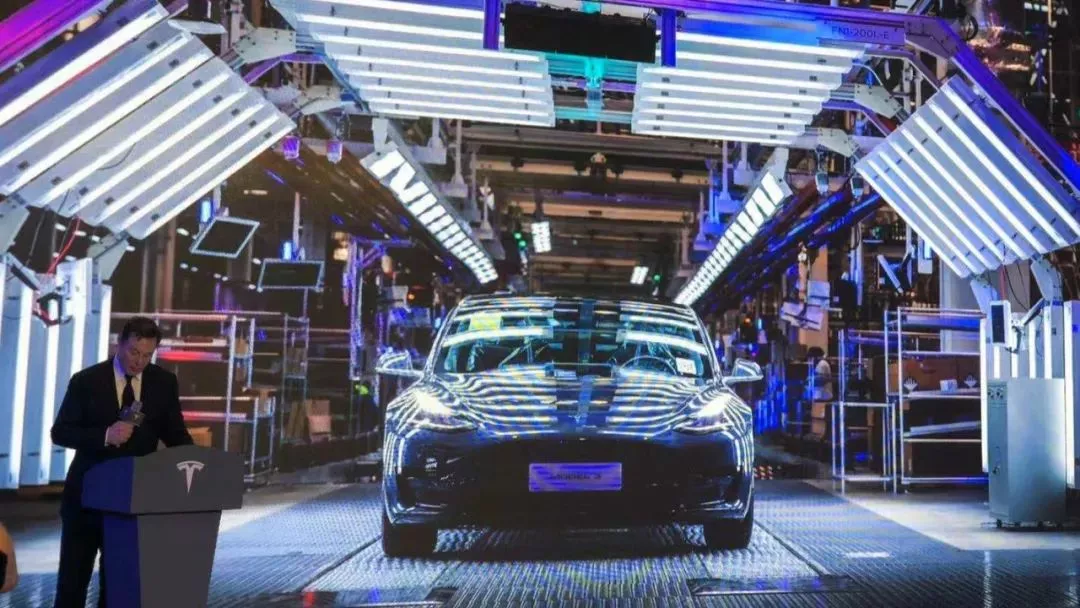It is reported that Tesla CEO Elon Musk's "super bad feeling" about the current economy may mark the "coal Canary" moment in the automotive industry. That is to say, although the industry managers have not shown any signs of concern, the industry recession is imminent.

It is reported that the "coal Canary" refers to a signal of imminent crisis. Canary is very sensitive to toxic gas. If there is a trace of toxic gas in the mine, Canary will show obvious irritability.
In an email sent to Tesla executives, musk said that Tesla needed to cut about 10% of its staff. He later told the employees that the company was just a bloated white-collar team, and he would continue to recruit blue collar workers for the production of cars and batteries.
Previously, the automotive industry generally believed that although the global novel coronavirus epidemic continued for two years, the potential demand for cars and trucks remained strong. This week, an industry executive even said that the market demand was "very high". Under such circumstances, Musk's warning is the first time that industry executives express different opinions.
Adam Jonas, an analyst at Morgan Stanley, said in a recent research report: "Tesla is not an ordinary canary in a coal mine, but more like a whale in a lithium mine." Lithium is the most important metal in electric vehicle batteries. "If the world's largest electric vehicle company warns about layoffs and the economy, investors should rethink their forecasts for profit margin and revenue growth." Tesla shares fell about 9% on Friday.
Two years ago, the outbreak of novel coronavirus forced factories to stop production, hitting the automotive industry. The shutdown at that time also led to a shortage of semiconductor chips, further dragging down automobile production. At the same time, the recent conflict between Russia and Ukraine has impacted the supply chain and sales. According to the data of industrial data company wards intelligence, the sales volume of new cars in the United States in May was equivalent to an annual 12.68 million, showing a weak performance, far lower than the 17million before the outbreak.
These problems mainly affect the supply side. At the same time, current inflation is also posing a threat to the demand side.
Jeff Schuster, President of LMC automotive, said about musk: "the risk of economic recession is very high, so what he said is not extreme." In addition to Tesla, Uber and LYFT, the US online car Hailing platforms, said last month that they would reduce recruitment and expenses. Carvana, an online used car trading platform, also said it would cut 12% of its workforce.
Other companies are also paying close attention to this issue. "We are not as pessimistic as musk, but we are also cautious about recruitment and spending," said John Dunn, chief executive of clean energy systems, a division of automotive parts giant bio group
Industry insiders are also worried about a possible recession. Tyson Jominy, vice president of automotive data and analysis at JD Power, a market research company, said: "the automotive industry is competing to find a haven composed of pent up demand, which may drive sales in the next few years. However, the looming economic storm is gathering and may destroy most of the demand."
Greenaven associates, a wealth management company, is one of the major investors in general motors. Joshsandbulte, the company's chief investment officer, attended the alliance Bernstein conference in New York this week. He said that compared with other business leaders, financial industry CEOs are more pessimistic about the future.
Although musk is much more pessimistic than other manufacturing leaders, sanburt believes that Musk's view should not be ignored because "although his approach is unique, it has been proved to be correct". "We are in chaos. Frankly, the leaders of the financial and business circles disagree. At some point in the future, we will see who is right."
In public, many senior executives of other auto manufacturers still believe that the potential demand is strong. Ford released its monthly sales data in the U.S. market last Thursday and said that its inventory continued to turn around at a record rate. "At present, consumer demand is very strong, and manufacturers do not even have inventory," Allyson Witherspoon, Nissan's head of U.S. marketing, said at the Reuters auto retail industry conference on Wednesday
Industry insiders also said that Tesla also has its own problems. For example, compared with the growth rate, Tesla's recruitment pace is too fast. According to Tesla's annual report, the number of employees of the company has doubled since the end of 2019. Morgan Stanley analyst Jonas pointed out that Tesla's average revenue per employee was $853000, not much higher than that of Ford, which is much larger. The latter was $757000.
In addition, Tesla's sales in the U.S. market are mainly concentrated in California, especially in the San Francisco Bay area, where a large number of technology company headquarters are gathered. Workers in the technology industry who hold a large amount of stock wealth are Tesla's key customer base. Now, however, some large technology companies are laying off workers, and smaller start-ups are finding it harder to raise money.
Barry Engle, a former senior executive of Ford and general motors and founder of qell, an investment company focusing on the transportation industry, believes that these situations may indeed exist, but Musk's concerns still cannot be ignored. "The possibility of an economic downturn is increasing. Musk and others know this. But the difference between them is that as an entrepreneur, musk naturally prefers to take action and tell the truth, even if it is unpopular."